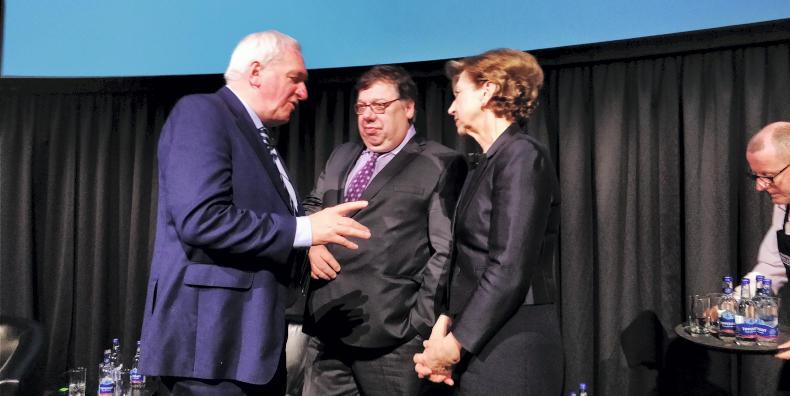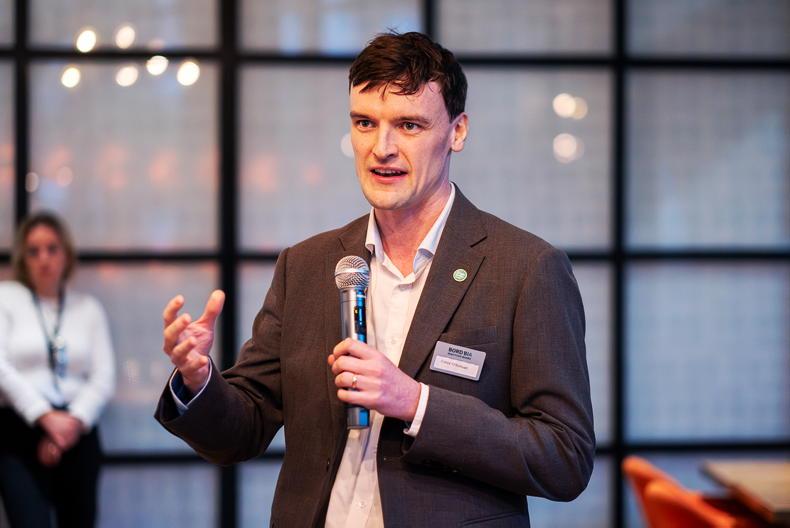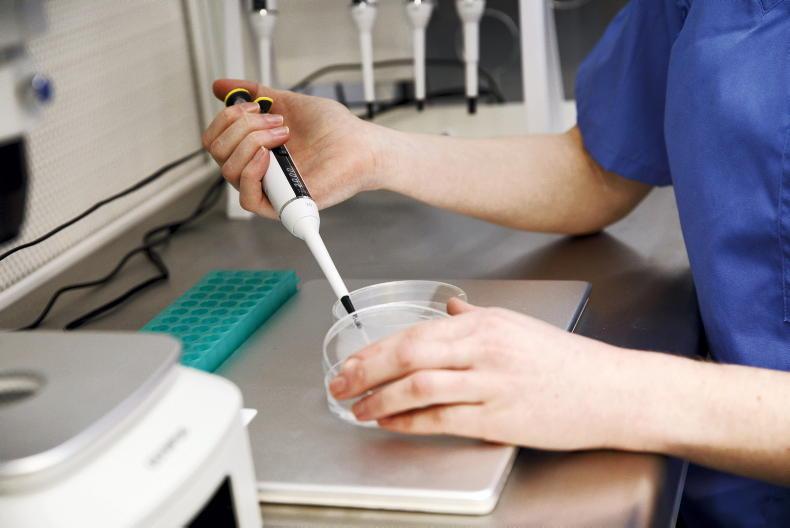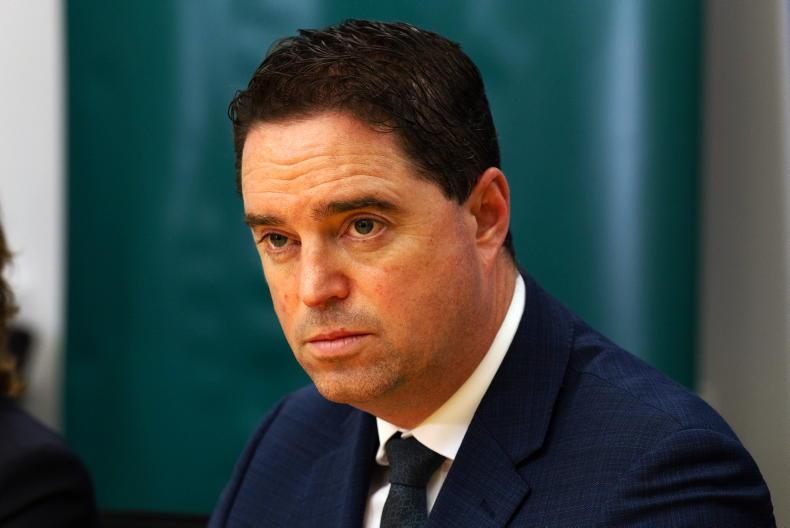The Institute of International and European Affairs (IIEA) hosted a half-day Brexit conference with three former Taoisigh and an ex-EU Commission President taking part. Former UK Attorney General (AG) Dominic Grieve also participated, as did Catherine Day, former Secretary General of the EU Commission.
Former Taoisigh
The conference was spread over two sessions, with the first involving John Bruton, Bertie Ahern and Brian Cowen focusing on the Good Friday Agreement and issues on the island of Ireland.
John Bruton was Taoiseach in the years leading up to the Good Friday Agreement when much of the background work was carried out with UK Prime Minister John Major.
Ireland and the UK both had elections in 1997, when Bertie Ahern was elected Taoiseach in Ireland and Tony Blair became the first Labour Prime Minister in a generation in the UK. They were the respective government leaders when the deal was concluded.
NI politics
In a wide-ranging debate chaired by Olivia O’Leary, all the former Taoisigh bemoaned the absence of a devolved administration in the North.
John Bruton pointed out that during the present negotiations about the Irish border, North-South institutions would be more important than ever.
It was Bertie Ahern who pointed out that agriculture in the North was most vulnerable, with 80% of farm income coming from EU funds. Brian Cowen pointed out that it currently takes a commercial vehicle from the EU three minutes to pass through Dover port, whereas it is 45 minutes for a non-EU vehicle.
EU Commission
Jose Manuel Barroso was a two-term EU Commission President and famously was in Northern Ireland during the early days of the DUP/Sinn Féin-led executive when Ian Paisley and Martin McGuinness were First and Deputy First Ministers.
He bemoaned the departure of the UK from the EU as negative for the EU given the size of the EU economy, and they had shaped much of the EU’s present structure.
He was also pretty sure there would be a deal, but given the UK red lines, it was likely to be unambitious. He also pointed out that while the issue of Brexit was a hot topic in the UK and Ireland, it was receiving minimal attention in the rest of the EU, including Brussels. This would change as the end game got closer, but it isn’t the priority at the moment.
UK view
Catherine Day felt the absence of the UK will be most felt in trade discussions, as they were the foremost advocates of free trade and also huge contributors in technical areas, particularly in financial services, where they were recognised as the foremost of the EU members.
Dominic Grieve, the former UK Conservative AG and not a believer in Brexit, explained to the audience that he recognised the EU as a resilient organisation and the UK has precipitated the crisis. He is of the view that there is likely to be a political crisis in the UK in the autumn, which could lead to an election, but that the UK view of the EU was that it was a separate sovereign state, not an organisation of which the UK is a member.
Special vitriol seems to have been kept for the European Court of Justice (ECJ), despite the UK having many international treaties with other dispute-resolution mechanisms, many of which would be considered inferior to the ECJ.
The UK media was widely criticised for perpetuating an anti-EU narrative that wasn’t particularly accurate.
Read more
CAP viewed as obvious target for cuts in EU budget – Hogan
Farmers warned about Brexit bubble
The Institute of International and European Affairs (IIEA) hosted a half-day Brexit conference with three former Taoisigh and an ex-EU Commission President taking part. Former UK Attorney General (AG) Dominic Grieve also participated, as did Catherine Day, former Secretary General of the EU Commission.
Former Taoisigh
The conference was spread over two sessions, with the first involving John Bruton, Bertie Ahern and Brian Cowen focusing on the Good Friday Agreement and issues on the island of Ireland.
John Bruton was Taoiseach in the years leading up to the Good Friday Agreement when much of the background work was carried out with UK Prime Minister John Major.
Ireland and the UK both had elections in 1997, when Bertie Ahern was elected Taoiseach in Ireland and Tony Blair became the first Labour Prime Minister in a generation in the UK. They were the respective government leaders when the deal was concluded.
NI politics
In a wide-ranging debate chaired by Olivia O’Leary, all the former Taoisigh bemoaned the absence of a devolved administration in the North.
John Bruton pointed out that during the present negotiations about the Irish border, North-South institutions would be more important than ever.
It was Bertie Ahern who pointed out that agriculture in the North was most vulnerable, with 80% of farm income coming from EU funds. Brian Cowen pointed out that it currently takes a commercial vehicle from the EU three minutes to pass through Dover port, whereas it is 45 minutes for a non-EU vehicle.
EU Commission
Jose Manuel Barroso was a two-term EU Commission President and famously was in Northern Ireland during the early days of the DUP/Sinn Féin-led executive when Ian Paisley and Martin McGuinness were First and Deputy First Ministers.
He bemoaned the departure of the UK from the EU as negative for the EU given the size of the EU economy, and they had shaped much of the EU’s present structure.
He was also pretty sure there would be a deal, but given the UK red lines, it was likely to be unambitious. He also pointed out that while the issue of Brexit was a hot topic in the UK and Ireland, it was receiving minimal attention in the rest of the EU, including Brussels. This would change as the end game got closer, but it isn’t the priority at the moment.
UK view
Catherine Day felt the absence of the UK will be most felt in trade discussions, as they were the foremost advocates of free trade and also huge contributors in technical areas, particularly in financial services, where they were recognised as the foremost of the EU members.
Dominic Grieve, the former UK Conservative AG and not a believer in Brexit, explained to the audience that he recognised the EU as a resilient organisation and the UK has precipitated the crisis. He is of the view that there is likely to be a political crisis in the UK in the autumn, which could lead to an election, but that the UK view of the EU was that it was a separate sovereign state, not an organisation of which the UK is a member.
Special vitriol seems to have been kept for the European Court of Justice (ECJ), despite the UK having many international treaties with other dispute-resolution mechanisms, many of which would be considered inferior to the ECJ.
The UK media was widely criticised for perpetuating an anti-EU narrative that wasn’t particularly accurate.
Read more
CAP viewed as obvious target for cuts in EU budget – Hogan
Farmers warned about Brexit bubble









SHARING OPTIONS